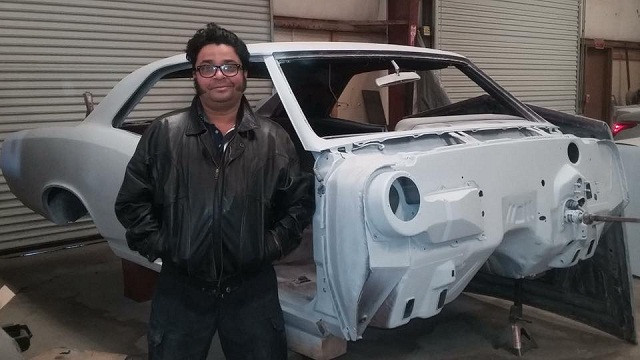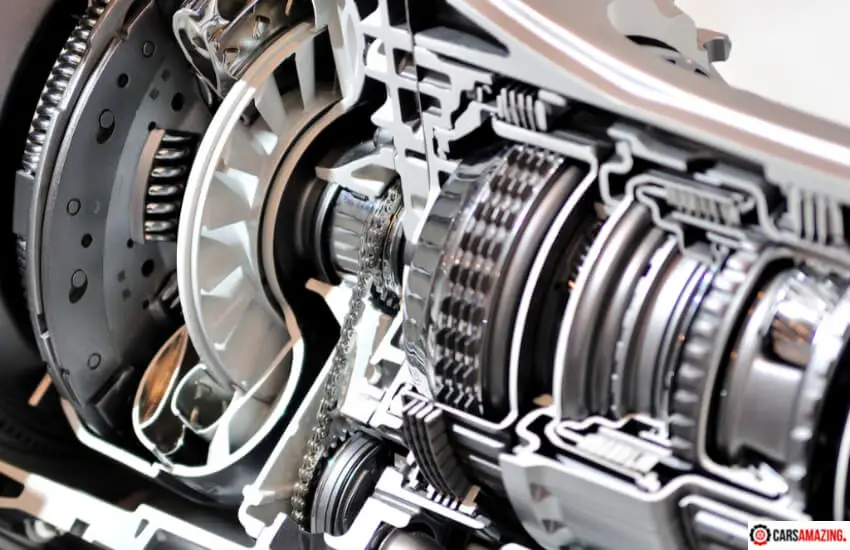Last Updated on February 13, 2023 by Leepu Da Maxim
Most Toyota models made after 2010 have a timing chain. The timing chain is made of metal links. The main duty of a timing chain is to synchronize the movement between the camshaft and the crankshaft.
List of Popular Toyota Models with Timing Chains
- Toyota Corolla (2009-2013): Timing Chain
- Toyota Camry (2007-2017): Timing Chain
- Toyota RAV4 (2006-2018): Timing Chain
- Toyota 4Runner (2010-2018): Timing Chain
- Toyota Highlander (2008-2018): Timing Chain
- Toyota Matrix (2009-2014): Timing Chain
- Toyota Sienna (2011-2018): Timing Chain
- Toyota Tundra (2007-2018): Timing Chain
- Toyota Avalon (2005-2018): Timing Chain
- Toyota Solara (2004-2008): Timing Chain
A timing chain is more durable compared to a timing belt and can last the entire life of your car without needing to be replaced. A timing belt is cheaper than the chain initially, but it is more expensive in the long run because of the frequent repairs. If you need to know whether your car has a timing chain or belt, you can either check the user’s manual or ask your mechanic. You can also open the cover at the engine’s end using the right tools and check. The timing chain will be made of metal links, while the belt is made of rubber and is more flexible.
This article takes you through the difference between a timing chain and a timing belt, plus their advantages and disadvantages. It also looks at different Toyota models with timing chains and answers some FAQs. Please ride with us to the end.
Timing Chain Vs. Timing Belt: Differences

Whether your car has a timing chain or a timing belt, the functionality is the same, and both work similarly in all engines. However, many manufacturers are switching to timing chains because they have long-term benefits over timing belts. This section looks at the main differences between a timing chain and a timing belt that make timing chains superior. Let’s get into it.
1. Timing belts are made of rubber, while timing chains are made of metals
2. Timing chains are more durable and less prone to breaking down or slipping
3. Timing belts need to be replaced occasionally (after every 100,000 miles) because they are prone to wear and tear, while timing chains can last the lifetime of the vehicle (over 200,000 miles)
Advantages And Disadvantages Of A Timing Chain
Advantages
1. It is durable thanks to the metallic material. A timing chain doesn’t need to be replaced during the vehicle’s entire lifetime.
2. Timing chains don’t require maintenance except for a check after reaching 125,000 miles
3. The material of the timing chain is resistant to changes in temperature
Disadvantages
1. A timing chain is heavier than a timing belt, thus impacting engine power and increasing fuel consumption
2. Its initial cost is higher than that of a timing belt
3. A timing chain is noisier than a timing belt
Toyota Models With Timing Chains
If you are curious to find out whether the Toyota you are looking to buy has a timing chain or timing belt, look no further. This section takes you through a list of all the Toyota models and what they use: those with a timing chain and those with a timing belt
| Toyota model | Year | What they use |
| Toyota Avalon | 1995-2004 | Timing belt |
| Toyota Avalon | 2005-2020 including the 4-cylinder hybris | Timing chain |
| Camry | 199-2001 V6 model up until 2006 | Timing belt |
| Camry | 2002-2020 4-cylinder2007-2020 V6 models | Timing chain |
| Corolla | 1990 -1997 | Timing belt |
| Corolla | 1998- 2021 | Timing chains |
| Cressida | 1990-1992 | Timing belt |
| Echo | 2000-2005 4-cylinder engine | Timing chain |
| Matrix | 2003-2013 | Timing chain |
| Paseo | 1992-1997 | Timing belt |
| Prius | All models | Timing chain |
| Tercel | 1990-1998 | Timing chain |
| Yaris | 2007- 2020 including Yaris hatchback | Timing chain |
| C-HR | Compact crossover | Timing chain |
| Highlander | 2001-2007 4-cylinder engine 2008- 2019 V6 models 2011 onwards | Timing chain |
| Highlander | 2006-2010V6 hybrid | Timing belts |
| Supra | 1990-1998 | Timing belt |
| Supra | New GR | Timing chain |
| Solara | 1991-2001 4-cylinder1999-2009 V6 model | Timing belt |
| Solara | 2002-2008 4-cylinder | Timing chain |
| MR2 | 1990-1995 | Timing belt |
| MR2 | 2000-2005 Spyder | Timing chains |
| GT86 | 2013-2020 | Timing chain |
| Celica | 1990-1999 | Timing belt |
| Celica | 2000-2005 | Timing chain |
| RAV4 | 1996-2000 4-cylinder models | Timing belt |
| RAV4 | 2001 onwards 4-cylinder models2006-2012 V6 models2016-2020 hybrid | Timing chains |
| Sienna | From 1998-2006 | Timing belt |
| Sienna | 2007-2020 V6 Models2011-2012 4-cylinder version | Timing chain |
| Previa | 1991-1997 | Timing chain |
| Venza | 2009-2015 | Timing chain |
| FJ Cruiser | 2007-2014 | Timing chain |
| 4Runner | 1990-2000 2010 4-cylinder 2003-2010 V6 engine | Timing chain |
| 4Runner | 1990-20022003-2009 v8 model | Timing belt |
| Tacoma | 1995-2020 4-cylinder 2005 onwards V6 models | Timing chain |
| Tacoma | 1995-2004 v6 | Timing belt |
| Sequoia | 2001-2009 4.7 L V8 | Timing belt |
| Sequoia | 2010-2012 4.6L V82008-20205.7L V8 | Timing chain |
| Land cruiser | 1993-1997 straight-six2008-20112013-2020 V8 | Timing chain |
| Landcruiser | 1998-2007 V8 | Timing belts |
| Tundra | 200-2004 V6200-2009 4.7L V8 | Timing belt |
| Tundra | 2005-2014 V62007-2020 5.7L V82010-2019 4.6 L V8 | Timing chains |
| T100 | 1995-1998 4-cylinder | Timing chain |
| T100 | 1993-1998 V6 | Timing belt |
| Toyota truck | 1990-1995 4-cylinder | Timing chain |
| Toyota truck | 1990-1995 V6 engine |
We hope that you can tell if your car has a timing belt or timing chain from this list. The only model we have excluded is the Landcruiser between 1990-1992 straight-six engines because the model uses a set of gears instead of chains or belts.
Frequently asked questions
Q. When Should I Replace The Timing Chain?
Timing chains are pretty durable, and most times, you won’t need to replace them since they last more than 200,000 miles. The timing chain needs to be replaced between 80,000 to 100,000 miles for higher mileage vehicles or when it shows signs of failing. You need to know the signs of a failing timing chain to have it replaced before it fails
Q. What Are The Signs Of A Failing Timing Chain?
If your timing belt or chain fails, you will notice the engine misfiring or rough idling, and it might also have strange noises coming from the engine or hard starts. Later models with VVT applications will generate engine codes and check engine lights before you hear the engine rattle.
Q. What Causes The Timing Belt Or Chain To Break Or Wear?
The timing belt stretches over time due to internal component wear, which causes the tensioner and guides to wear out. Wear and tear may cause the chain to fail, making the vehicle not run at all. Using the wrong engine oil also causes the timing belt or chain to wear faster. Always check the recommended API oil service rating and viscosity and use the correct oil to ensure it flows quickly and at the proper pressure; this ensures the chain is lubricated and the old doesn’t cause extra load.
Q. Can I Drive With A Damaged Timing Chain Or Belt?
No, it is not advisable to drive with a bad timing chain because this can cause damage to valves, camshaft, cylinder head, and other parts of the engine leading to a more intensive and expensive repair. Please do not drive with a bad timing chain for your safety and also for your wallet’s sake
Conclusion
A timing chain or timing belt synchronizes the engine’s camshaft and crankshaft to allow valves and pistons to move at the correct timing. They will enable the engine to operate smoothly while avoiding damage to components. Toyota uses both timing chains and timing belts in their models, but since 2005, timing chains have been more prevalent due to their durability. We hope that you can identify whether the Toyota you are eyeing has a timing belt or a timing chain from our list.

Hi, I’m Leepu Da Maxim , a dedicated car enthusiast with over 10 years of experience in this field, and I’m thrilled to share my passion and expertise with fellow car enthusiasts like you. My journey began in my hometown West Jordan, Utah, where my fascination with the mechanics and design of cars sparked at a young age. Over the years, this passion has evolved into a commitment to providing accurate, insightful, and engaging information about all things automotive through CarsAmazing .

